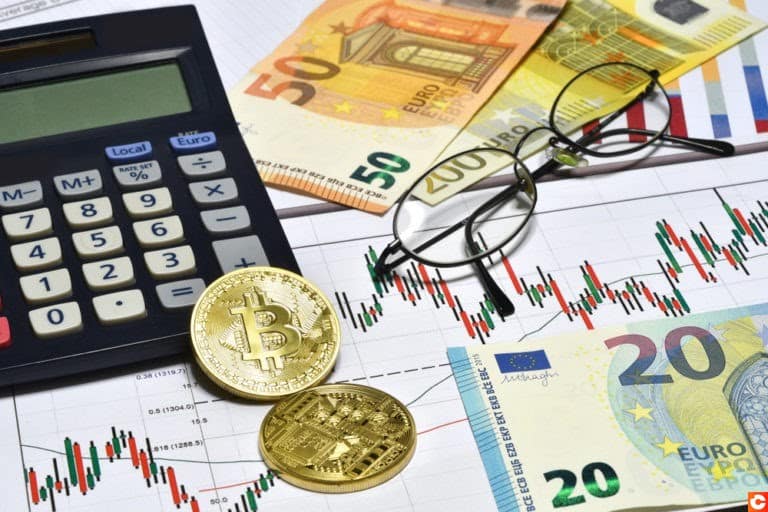Bitcoin, Taxes And Taxation: Understanding Everything When Declaring Crypto Accounts Abroad
Calculating and reporting capital gains from digital assets, whether it be Bitcoin or any other cryptocurrency or related investment product, is not enough to be in compliance with French taxation. Indeed, one of the main tax obligations of the taxpayer is also the declaration of their accounts of digital assets held abroad and who declares.

Below you will understand the logic with which the state created the tailor-made form, as well as the scope of your tax obligations. You will also be informed about the penalties for failure to report. Finally, you will also find all the necessary instructions to easily declare your crypto-asset account domiciled abroad.
A true copy of Form 3916
The French administration has difficulty in accessing the accounts of French taxpayers held in foreign companies. Therefore, just like bank accounts held abroad, you have to declare to the French tax authorities your income, as well as Bitcoin and crypto assets held abroad.
More specifically, all accounts opened, used or closed during 2019 must be declared. This means an account opened in January 2020 is excluded for the tax declaration campaign of 2019. However, it must be declared in 2021.
Accounts must be declared annually. However, the tax authorities carry over information from one year to the next via pre-filled form. The result: it will only be necessary to check the information and then sign off the declaration.
A taxpayer who has multiple Bitcoin and digital asset accounts held overseas must complete multiple forms. It is important to complete one form per account.
A severe penalty for unscrupulous taxpayers
The fine for not reporting digital assets €700 per account. This is for small accounts with a value of less than €10,000.
The fine can increase to “€1,500 […] when the market value of the digital asset account […] is greater than €50,000…” according to article 1736 of the General Tax Code (CGI).
Even though the fine is capped at €30,000, not reporting the accounts can be relatively onerous.
The extended scope of accounts for the year 2020
In previous years, there was doubt as to the need for declaring digital asset transactions that were not carried out via any fiat currencies (i.e euros).
“From now on, this obligation applies to all exchange platforms keeping digital assets and being domiciled abroad, whether the currencies are seen as legal tender or not” as specified in the white paper drawn up by ORWL Avocat and Waltio.
Good to know: independent wallets supplied by exchange platforms do not have to be declared.
The law does not specify how bank accounts allowing the purchase and sale of crypto assets (i.e. Wirex, Revolut, Crypto.com) should be declared. Which form should be filled, 3916 or 3916-BIS? Perhaps both?
If in doubt, we can only recommend declaring such accounts twice. Principle of prudence obliges. It is, therefore, advisable to tick the box 8UU and hence fill out the form 3916 and 3916-BIS.
A form not found on the online declaration area
Surprising as it may seem, form 3916-BIS is currently missing from the online reporting area. This is an oversight by the French tax administration. Apparently, they have “taken good note of it”.
How to declare then?
First of all, it is possible that this will be corrected very soon by the French tax authorities. You are then left with two options:
- Wait for the tax administration to correct the problem. The taxpayer may have to wait a few days or more for the form to be online. Please note, there is no guarantee that this form will be corrected on time.
- Send a hard copy of form 3916-Bis. You should inform them that the form will be sent as a hard copy. Here is the document to print and send via your local post service.
To learn more about the taxation of cryptocurrencies for French taxpayers, here is the 18-page white paper (completely free) co-authored by tax law firm, ORWL Avocats.
This document allows you to understand in detail how to calculate your taxable capital gain, so as to calmly anticipate any tax audit.
Pierre Morizot, Co-founder of Waltio
Waltio is a cryptocurrency tax and accounting assistant. Our mission is to increase the adoption of digital assets (Bitcoin and cryptocurrencies) by simplifying their administrative and regulatory management. In 2019, our tax robot supported more than 400 French taxpayers with their tax.
Disclaimer: The information provided on this page is for informational purposes only. They should under no circumstances be considered as legal, tax, financial or investment advice. Waltio cannot be held responsible for any information, comments, analysis, opinions, advice and / or recommendations that prove to be inaccurate, incomplete or unreliable or result in loss of investment or otherwise.
Maximize your Cointribune experience with our "Read to Earn" program! For every article you read, earn points and access exclusive rewards. Sign up now and start earning benefits.
Diplômé d'une grande école de commerce, m'intéresser aux nouvelles tendances de marché fait partie de mon métier. L'intelligence artificielle, la blockchain et les cryptos, il fallait que je vous en parle !
The views, thoughts, and opinions expressed in this article belong solely to the author, and should not be taken as investment advice. Do your own research before taking any investment decisions.